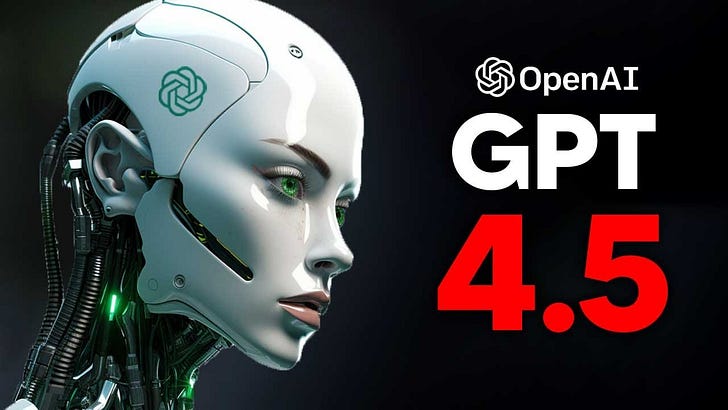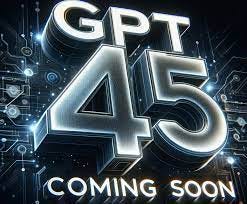GPT 4.5 - OpenAI's Next Big Leap Forward in AI?
OpenAI to Unleash Multimodal GPT 4.5? Leaks Point to Integrated Text, Audio, Video and 3D AI to Rival Google's Gemini.
Rumors have been swirling in recent weeks about OpenAI potentially releasing an upgraded version of their popular conversational AI system, GPT-4. Dubbed "GPT 4.5", this new AI model is shrouded in mystery, but leaks and insider speculation paint an intriguing picture of what capabilities it may have.
In mid-November, an anonymous but reputable AI prediction Twitter account called "Jimmy Apples" tweeted that GPT 4.5 could see a release by the end of December. Jimmy Apples accurately predicted the release timing of GPT-4 earlier this year, lending credibility to the rumor. Around the same time, another leaker tweeted questioning if OpenAI would "take the mitts off" and unveil what they have been working on to compete with Google's new conversational AI system, LaMDA (renamed Gemini).
Then, earlier this week, a screenshot emerged on Reddit claiming to show OpenAI's internal draft page for GPT 4.5. While unverified, the page describes GPT 4.5 as "our most advanced model" with "multimodal capabilities across language, audio, vision, video, and 3D alongside complex reasoning and cross-modal understanding." This hints at a potential massive leap over GPT-4 with not just text generation abilities, but also integration of other data types like images, video, and 3D environments.
Jimmy Apples commented that while unconfirmed, the screenshot content "seems to be largely correct." Separately, a technology newsletter called The Information reported that OpenAI was working on an AI model last year codenamed Araus, which was designed to run chatbots less expensively than GPT-4. While Araus apparently underperformed expectations, its described capabilities have similarities to the rumored GPT 4.5 specs.
HEADLIME IS THE GO-TO GPT-3 TOOL FOR MARKETERS.
WRITESONIC IS ONE OF THE BEST ARTIFICIAL INTELLIGENCE-POWERED COPYWRITING GPT-3 TOOLS.
Adding further fuel to the fire are vague tweets from OpenAI leadership hinting at advanced AI capabilities under development. Sam Altman recently commented that “as we get closer and closer to superintelligence, everybody involved gets more stressed and more anxious,” while another leader emphasized the potential of “10,000x engineer researchers” — perhaps a reference to AI agents able to automate software development.
Piecing together the various rumors and speculation, GPT 4.5 may represent an “everything-to-everything” multimodal AI model that can process and generate text, images, audio, video, and 3D scene data. It could have significantly lower hallucination rates compared to GPT-3 and GPT-4, better cross-domain reasoning, and cost improvements from conditional model loading. An integrated autonomous AI assistant able to help automate software engineering also seems plausible.
In response to the launch rumors, Google notably just released the developer API for its Gemini conversational AI model earlier than publicly planned. An internal Google memo leaked explaining this move as preemptive action to “reinforce our position in light of emerging advancements” (presumably referring to GPT 4.5). The timing lends further credibility to GPT 4.5 speculation.
Of course, without official confirmation from OpenAI, the specifics around GPT 4.5 remain speculative. The leaked screenshot could represent an elaborate fake, or the model itself could still be months away from release or canceled entirely. But OpenAI rarely stays still for long, with the organization heads down focused on developing the next generation of conversational AI.
Whether GPT 4.5 manifests in the coming weeks or next year, continuous progress in this field seems inevitable. With Google making strategic moves to compete, the race is clearly on to usher in even more advanced and multipurpose AI systems. Each iteration further propels scientific understanding of natural language processing, reasoning, and intelligence itself.
While AI safety remains paramount, responsible development of increasingly capable models like GPT 4.5 could prove enormously beneficial. The potential to accelerate discoveries across domains like medicine, materials science, clean energy, and more underscores the technology’s awe-inspiring promise. We may stand on the cusp of another paradigm shifting leap forward.





